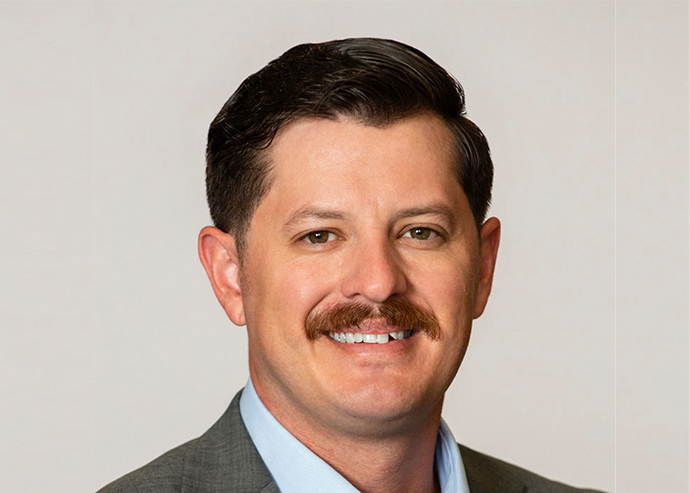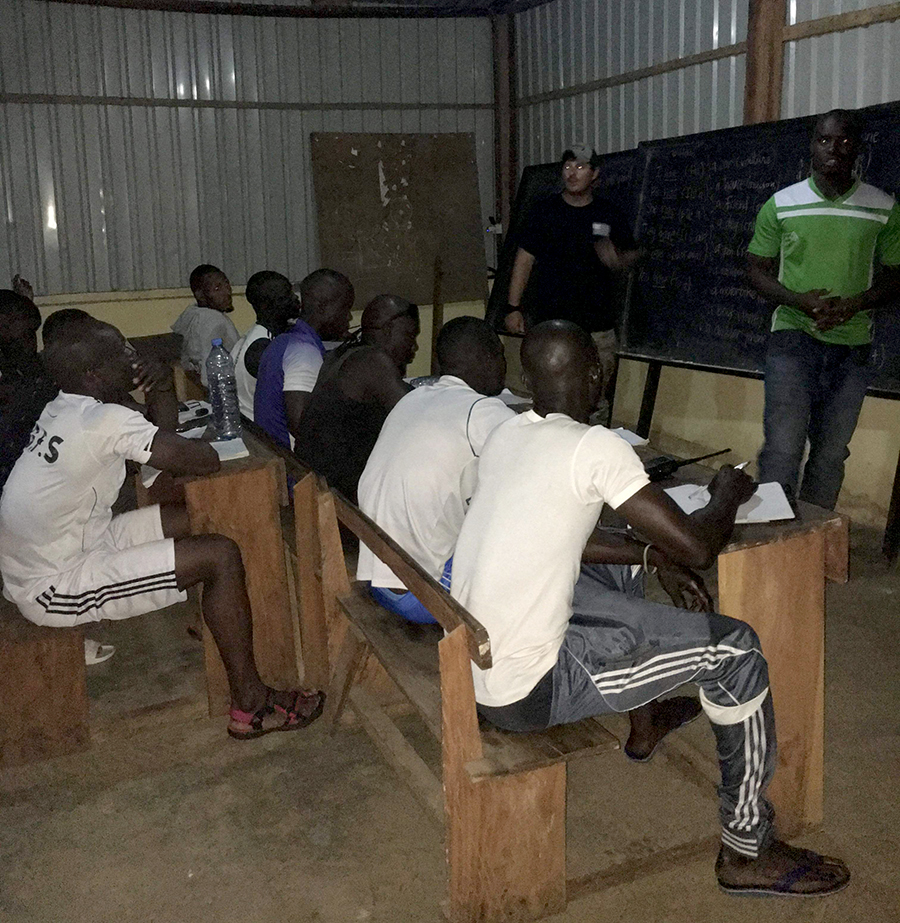
Master of Science in Computer Science, Stanford University ’25—expected
Pat Tillman Scholar ‘23
Bachelor of Applied Arts and Sciences, University of Pennsylvania ’22; Concentration in Data Analytics and Social Sciences
As a teenager, Charles Hernandez didn’t think he was cut out for academics. “Because of my time in foster care, I never did well in school, and I eventually became a high school dropout,” he confesses. After earning his GED, Charles enlisted in the US Army to care for his family. During his first deployment, however, his sense of patriotic duty as well as his personal ambitions grew. First, he wanted to join the Army Special Forces—the elite unit known as the Green Berets. “I retook my ASVAB and then transitioned from the regular army to Special Forces. And after completing that feat, that's when I thought, okay, now I'm ready to go to school.” By May 2022, Charles would graduate from Penn’s Bachelor of Applied Arts and Sciences (BAAS) program while continuing to serve full time. “Now,” he shares, “I’m a graduate student at Stanford’s School of Engineering; it’s remarkable!”
Looking back, Charles remembers feeling that something was missing during his early years of service. “I was always insecure about my lack of education,” he shares. “I couldn’t write well; I didn’t know how to speak well—the whole nine yards,” he insists. As his career progressed, he spent more time with officers and enlisted service members with college degrees, finding both inspiration and support. “They encouraged me to pursue my undergraduate studies,” he says. “There’s a lot of encouragement for education in the military. If you're a service member pursuing education, I’m confident you have the support from your chain of command, especially if they’re team sergeants or detachment commanders.”
In 2018 he enrolled at a community college near Fort Liberty in Fayetteville, North Carolina, where he was stationed. After two years of earning credits, he was planning to finish his bachelor’s at a four-year state school—until he learned about Penn’s online degree.
“I had a really great friend and academic mentor from Special Operations named Lee Bagan. He was a fellow Green Beret and had enrolled in the JD/PhD program at Stanford.” Lee explained that an Ivy League education would afford Charles great opportunities for his future. “He understood the potential of a degree from Penn and encouraged me to apply.”
Charles was accepted into the Penn BAAS program for fall 2021, fulfilling half of his bachelor’s degree requirements with transfer credits. To pay for college, Charles was taking advantage of the GI Bill®. Once at Penn, he was also awarded the Penn LPS Online Quaker Completion Scholarship, which covers tuition for six course units annually.
Though he was sold on the Penn degree, deciding on his concentration took more thought. “Coming from the military and Special Operations, most people I know lean toward studying business,” he shares. “I was planning on following the herd.” However, a conversation with undergraduate programs director Kathy Urban opened up possibilities he hadn’t considered before. “Kathy convinced me to diversify my expertise and focus on my technical skills,” he says. “Her opinion was refreshing. She knew exactly how to balance the BAAS curriculum to best serve my military and post-military careers.”
Charles chose the Data Analytics and Social Sciences concentration, which would lead him to set his next academic goal: earning a master’s degree in computer science. “Penn helped me find my professional identity,” he says. “Dr. Sean Kates helped me ease into data analytics as a nontraditional student and even detailed how I should use the skillset to advance my career. That’s when I realized that maybe I should just focus on computer technology; it’s what I’m really passionate about.”

As he refined his technical skills in the BAAS, he also leaned into additional subjects that piqued his interest. “I’ve completed seven deployments across the world,” he says, including in Central Asia and the East Coast of Africa. “I’ve always been curious about how my work relates globally,” he explains. “Global studies courses offered profound perspectives that helped me understand and appreciate my service.”
Ultimately, along with his bachelor’s, Charles earned three certificates: Data Analytics, Upskill, and Professional Writing. “By the way, I’m a phenomenal writer now,” he boasts. “I would say the professional writing courses were critical for admittance into Stanford,” he adds, noting that he devoted a project in Composing a Professional Identity to developing his graduate school application.
Another consequential subject area for Charles was leadership and communication. In particular, he recalls an assignment in Leadership Lessons from the Social Sciences where students had to record themselves and analyze their communication skills. “Professor Rebecca Padot helped me refine literally everything. She gave me a lot of situational awareness about how I present myself and provided candid feedback,” he says, and with her help, he made significant improvements. “Fast forward to a few months later: I was in front the Special Forces commanding general having a conversation,” he says—one that would be momentous.
The general had been holding an open forum for soldiers and concluded by asking if there were any questions. Charles spoke up. When asked about his career goals, Charles shared his desire to pursue a master’s degree—a common professional development path for officers, but still a rare and complicated path for enlisted soldiers like Charles. By the end of the conversation, Major General Richard Angle offered Charles his endorsement. “Because of those leadership courses, I knew how to posture myself, how to communicate clearly, and how to be confident as an enlisted soldier in a very high-profile situation,” he says. “I simply voiced my goals to him,” Charles underscores, “and a year later I'm at Stanford.”
As he dives into his first semester of graduate studies this fall, Charles knows there is still hard work to be done. “When you’re endorsed by organizations like Penn, or the Pat Tillman Foundation, or someone like an SF general, there's a lot of responsibility to do impactful work,” he shares. “My call to service has strengthened over time, but I feel responsible to do even more now. Penn gave me the knowledge and the skills to scale my service commitment to help the world.”
Charles’ plans include using his education to improve defense technologies in vulnerable regions and provide technology-based support for unstable and developing countries across the globe. He also strives to crowdsource a scholarship opportunity for soldiers attending Penn’s BAAS program. And he hopes his example inspires more service members to pursue their education. “Believe in yourself and stay resilient. Life is riddled with adversity and failure, and sometimes, all you can do is look down and step one boot in front of the other.”
"GI Bill®" is a registered trademark of the US Department of Veterans Affairs (VA).
